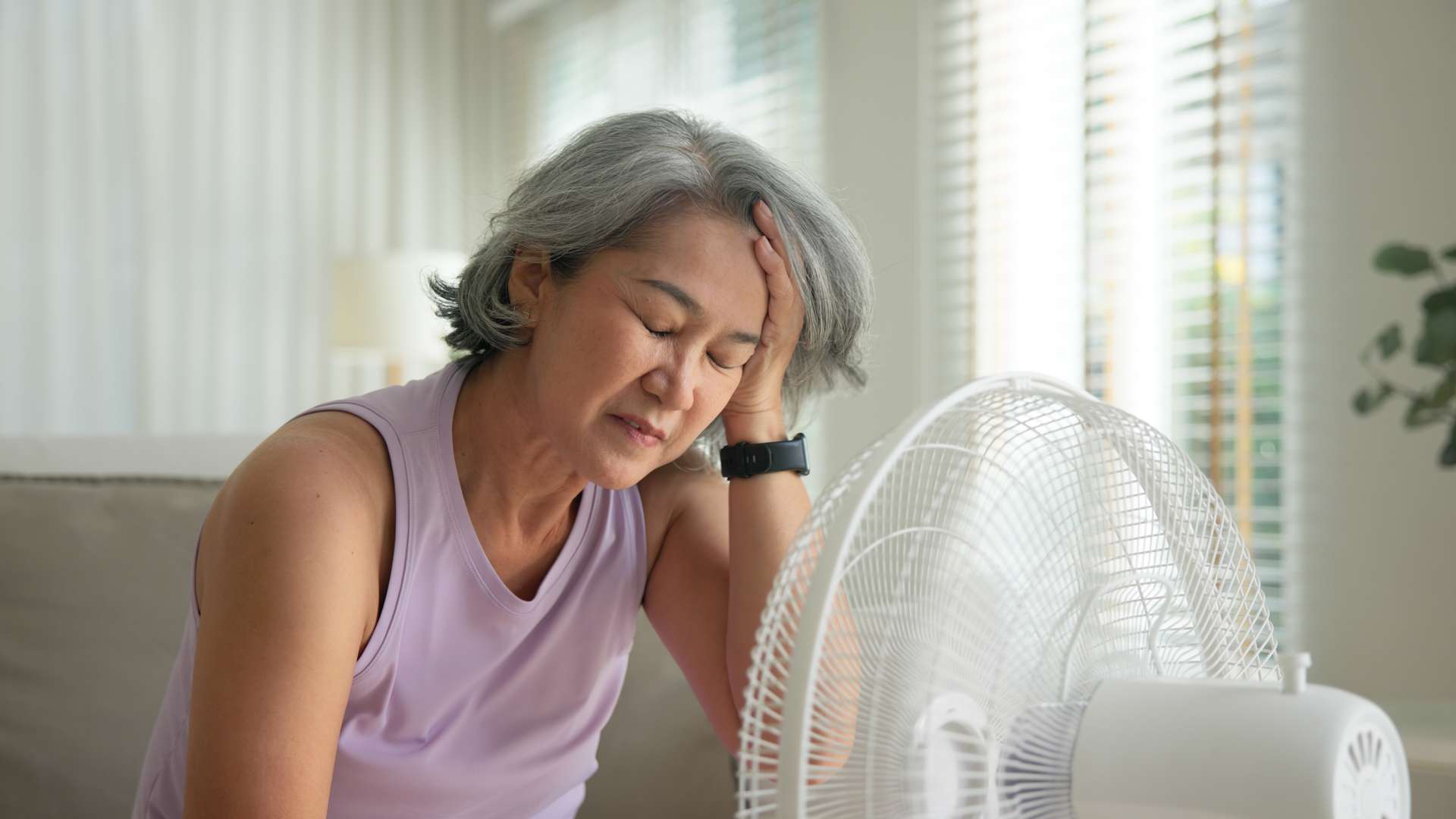The body is a complex system where hormones, organs, and biochemical signals work together to keep everything functioning properly. While your body is adaptable, circumstances like long-term stress, pregnancy, or medical conditions can throw that system out of balance. When that happens, even small shifts in hormone levels can affect how you feel, sleep, and function each day.
Bioidentical hormone therapy can help restore more stable hormone levels and support overall wellness. At our Garden City, NY office, Dr. Chris Calapai offers this treatment to patients looking for a way to address hormone-related symptoms.
How Hormones Affect Your Health
Estrogen
Estrogen regulates your reproductive system, but it does much more than that. It influences brain function, cholesterol levels, bone density, and how your body distributes fat. When estrogen levels drop, you may notice changes in mood, memory, sleep patterns, or vaginal health. Low estrogen can also affect cardiovascular health and bone strength, especially during menopause. Keeping this hormone in balance helps support a wide range of physical and cognitive functions.
Progesterone
Progesterone helps regulate your menstrual cycle and supports pregnancy, and also has broader effects on your body. It works with estrogen to keep your hormone levels stable and contributes to sleep quality, mood regulation, and brain function. Low progesterone can cause irregular periods, anxiety, poor sleep, or difficulty maintaining a pregnancy. You may also experience estrogen dominance when progesterone drops, which can create additional imbalances.
Testosterone
Although testosterone is often associated with men, both men and women need it to maintain muscle mass, energy levels, and libido. It also plays a role in mood, motivation, and how your body burns fat and builds strength. Low testosterone can lead to fatigue, decreased strength, difficulty concentrating, or reduced sexual function. Hormonal shifts, stress, and aging can all affect testosterone production and how your body uses it.
Thyroid Hormones
Thyroid hormones regulate your metabolism, which means they affect how your body uses energy. They also influence digestion, temperature regulation, heart rate, and brain function. If your thyroid hormone levels are too low, you might feel cold, sluggish, constipated, or mentally foggy. When levels run too high, you may experience weight loss, anxiety, insomnia, or a rapid heartbeat. Identifying and correcting thyroid hormone imbalances can help bring your entire system back into better rhythm.
Areas That Can Be Improved With Balanced Hormones
Energy Levels
When hormone levels shift, your body may struggle to produce and sustain the energy it needs, even if you sleep well or eat right. Fatigue that does not improve with rest often points to an imbalance. BHRT treatment can help support energy production by optimizing the hormones that regulate metabolism, stress response, and cellular function.
Sleep Quality
Hormones like progesterone, estrogen, cortisol, and melatonin all influence how well you fall and stay asleep. If these hormones fluctuate, your sleep cycle can become disrupted, leading to restless nights or frequent waking. Hormone therapy can help restore balance so your body follows a more natural rhythm. Better sleep also supports recovery, brain function, and immune health.
Mood and Emotional Stability
Estrogen, testosterone, and progesterone all affect brain chemistry, particularly how your body uses serotonin, dopamine, and GABA. When these hormone levels shift, you might experience irritability, anxiety, low mood, or a reduced ability to cope with stress. Rebalancing your hormones can help stabilize these neurotransmitters and make it easier to regulate your emotions and respond better to daily stressors.
Mental Clarity and Focus
Cognitive issues like brain fog, forgetfulness, and trouble concentrating often trace back to hormone imbalances. You may notice clearer thinking and better memory recall once hormone levels return to a more stable range.
Sex Drive and Sexual Function
Testosterone and estrogen both contribute to libido, arousal, and sexual function in men and women. When levels drop, you may feel less interested in sex or experience discomfort during intimacy. Low hormone levels can also reduce blood flow, sensation, and natural lubrication.
Weight Regulation and Metabolism
Hormones help direct how your body stores fat, builds muscle, and burns energy. When estrogen, testosterone, insulin, and thyroid hormones are out of balance, it becomes harder to maintain a healthy weight, even with diet and exercise. You may feel like your metabolism has slowed down or that your efforts are not producing results.
Muscle Mass and Strength
Low levels of testosterone, growth hormone, or thyroid hormones can lead to decreased muscle tone, slower recovery after workouts, and an overall reduction in physical strength. If muscle starts breaking down faster than you can rebuild it, you might feel weaker or more easily fatigued during physical activity.
Skin, Hair, and Nails
Hormonal shifts can affect collagen production, oil balance, and circulation, all of which influence the health of your skin, hair, and nails. You might notice thinning hair, brittle nails, or dry, dull skin when estrogen or thyroid hormones are low. Bringing hormones back into balance can help improve the skin’s overall appearance.
Bone Density
Estrogen and testosterone help regulate how your body builds and maintains bone tissue. When those hormones fall, bone breakdown can speed up, and new bone formation may slow down. That imbalance can increase your risk for fractures and reduce skeletal strength.
Cardiovascular Health
Hormones affect blood vessel flexibility, cholesterol metabolism, and how your heart responds to physical and emotional stress. Low estrogen or thyroid hormone can raise your risk for high blood pressure or changes in lipid levels. Restoring hormonal balance may help support better circulation and a more stable cardiovascular profile. While hormone therapy is not a substitute for heart-healthy habits, it can help support cardiovascular function alongside lifestyle changes.
What Makes Bioidentical Hormones Different?
Bioidentical hormones are structurally identical to the hormones your body naturally produces, which allows your system to recognize and use them more efficiently. Synthetic hormones may not bind to receptors in the same way or produce the same effects.
With BHRT, we use lab-tested hormones derived from plant sources, often delivered through creams, injections, or hormone pellet therapy. Pellets are placed just under the skin and release hormones gradually, which helps maintain more stable levels.
Is BHRT Suitable for Men and Women?
BHRT is suitable for both men and women, though the hormones we focus on and the dosing strategies often differ. Men typically need support with testosterone, while women may need a combination of estrogen, progesterone, and sometimes testosterone. Both men and women can experience symptoms like fatigue, low libido, sleep disturbances, or weight changes when hormone levels shift. We often recommend hormone pellets as a delivery method because they provide steady, consistent absorption without the daily ups and downs of creams or pills.
Feel Like Yourself Again With BHRT
Bioidentical hormone replacement therapy can help stabilize energy, improve sleep, support cognitive function, and regulate mood by restoring hormones to more functional levels. At the practice of Dr. Christopher Calapai, we offer medically guided hormone therapy to men and women in Garden City, NY, using lab testing and treatment protocols based on individual hormone needs. To schedule a consultation or learn more, call (516) 794-0404 or contact us through the online form.


